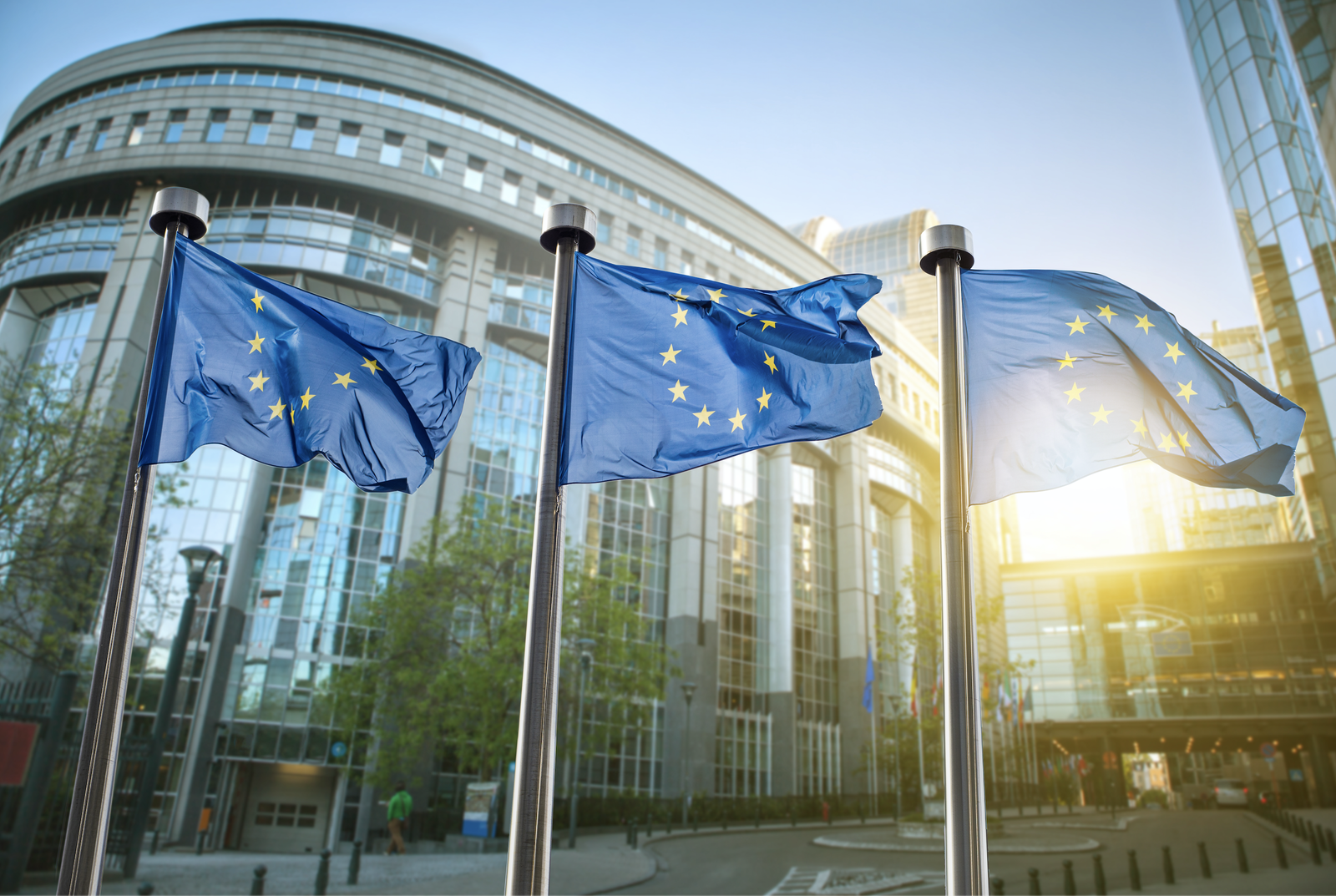Franchise regulations in the EU (and other European countries)

The European Union comprises of 27 member nations with an estimated 450 million people within the trading block. There are an estimated 22.5 million small and medium sized enterprises in the EU. From that, the European Franchise Federation (EFF) estimates there are 8,500 distinct franchise brands. Despite the vast language and cultural differences in Europe, franchising is more widely used as a business strategy in Europe than it is in the United States – which has an approximate 2,500 distinct franchise brands.
As it stands, there is no overarching body of law that governs franchising in the member states of Europe. It therefore becomes a matter of state-by-state legislation regulation between the participating entities, as opposed to any type of common EU legislature. That’s not to say the EU or other governing bodies haven’t had any input in establishing the perimeters of what is both fair, or just, in terms of franchising. This article will unpack the who’s-who of European franchise regulation, before outlining several European state examples of how franchising law operates within national borders.
The European Commission
The European Commission is the executive branch of the European Union, responsible for proposing legislation, implementing decisions, upholding the EU treaties and managing the day-to-day business of the EU. Therefore, among EU nations, the concept of franchise is taken from the European Economic Community (EEC) Treaty. In 1988 the European Commission defined a ‘franchise concept’ and a ‘franchise contract’ in Article 85 (3) of the Treaty to categorise franchise agreements.
Franchise Concept
“A package of industrial or intellectual property rights relating to trademarks, trade names, shop signs, utility models, designs, copyrights, know-how or patents, to be exploited for the resale of goods or the provision of services to end users.”
Franchise Contract
“An agreement whereby one undertaking, the franchisor, grants the other, the franchisee, in exchange for direct or indirect financial consideration, the right to exploit a franchise for the purposes of marketing specified types of goods and/or services.”
Jurisprudence
This updated EC definition of franchising was spurred by case-based rulings of the Court of Justice of the European Union (CJEU). The Court of Justice of the European Union (CJEU) interprets EU law to make sure it’s applied the same way across all EU countries, settling legal disputes between national governments and EU institutions. There have been several major cases, but the most important is the Pronuptia (1986) case, which set the benchmark for obligations of franchisees and franchisors and led to the creation of the block exemption regulations.
The CJEU ruled that franchisees had to be an independent business. Therefore, franchisees should learn the know-how skills of the franchisor, use their brand name, have a reasonable non-compete clause and pay royalties to the franchisor. Price recommendations made by the franchisor were not prohibited as long they were not obligatory.
The European Union Intellectual Property Office (EUIPO)
Another cornerstone of the franchising framework is the European Union Interllectual Property Office. Founded in 1994, this EU agency is responsible for the registration of the European Union trade mark and the registered Community design across the 27 Member States of the EU. They also work with the IP offices of all EU Member States and international partners to offer a similar registration experience for trade marks and designs across Europe and the world.
With a single application, the EUIPO offers business and citizens exlusive rights for trade mark and design protection in the EU. There are five working languages at the Office – English, French, German, Italian and Spanish. The office also processes trade mark and design applications in 23 official languages of the EU.
- The European Union trade mark (EUTM) grants exclusive rights in all current and future Member States of the European Union through a single registration, filed online. The basic registration fee is EUR 850 and it covers one class of goods and services. An EU trade mark registration lasts for 10 years but can be renewed indefinitely in blocks of 10 years.
- The registered Community design (RCD) also grants exclusive rights throughout the European Union and future Member States. The fee for registering and publishing one design is EUR 350. A registered Community design is initially valid for five years from the date of filing and can be renewed in blocks of five years up to a maximum of 25 years.
The European Franchise Federation (EFF)
Outside of the EU framework, the European Franchise Federation has led the way for ethical franchising practices. The EFF has 19 state members from EU, EEA and other European nations. In 1972 this non-for-profit organisation developed a European Code of Ethics.
The European Commission endorses the organisation, describing the code as, “the franchising industry’s self-regulatory code, designed for all stakeholders in the franchise industry in Europe, franchisors and franchisees in particular, looking for guidance on best practice in franchising relations.”
Code of Ethics
The Code of Ethics isn’t designed to replace the sovereign law of any nation, but rather unify the diverse franchising industry of Europe’s regulation integrity. Only one national franchising association can become a member in each European country. And for EFF members the code is binding.
The following can be found in the code:
- The definition of franchising
- The guiding principles of franchising
- The rules regarding recruitment, advertising and disclosure
- An outline of the franchise agreement
- The ethics relating to master franchise agreements
As individual laws and regulations vary from country to country, member associations will be the specialist authority in their own jurisdiction, while at the same time following the code of ethics to ensure the best and fairest franchising practices will be met by all.
KEY REGULATIONS BY COUNTRY
- Belarus
- Estonia
- France
- Germany
- Hungary
- Italy
- Latvia
- Lithuania
- Poland
- Spain
- The Nederlands
- Turkey
- United Kingdom
Belarus
The Civil Code of the Republic of Belarus is the main legal document regulating franchising in Belarus.
The franchising agreement must be concluded in writing. The agreement has to be registered at The National Centre of Intellectual Property. Amendments to the agreement or its termination, or expiry, also constitutes grounds for registration. If the franchisor does not reside in the country, the amount of its franchise remuneration constitutes the grounds for the taxation of income of foreign companies that do not perform any activities in the territory of Belarus. Unless otherwise provided in the Agreement of the Elimination of Double Taxation, the tax tariff for the franchise fee payment is 15 percent. A franchisee residing in the Republic of Belarus shall hold and transfer this tax to the tax office from the amount of franchise remuneration payable to a foreign franchisor.
Estonia
Franchise agreements in Estonia are regulated by the Law of Obligations Act. The legal regulation of franchise agreements in Estonia allows a relatively easy signing of an agreement. Rights, obligations and liabilities (duties) of the parties are defined by the law in order to provide additional protection to the agreement. Industrial property law and competition laws are in accordance to EU regulations.
France
France has no such regulation that defines a franchise. Franchising in France has been defined by case-law and is subject to business regulations such as contract and commercial law principles. As such, to be considered a franchise in France the agreement must cover the right to use a registered trademark, and cover the transfer of know-how.
Furthermore, franchisors have to produce a pre-contractual document and be transparent with their franchisees in terms of their business and franchise network. The pre-contractual document has to be delivered ahead of time before the signing of any franchise agreement. It is imperative that the franchise agreement be balanced and reflects real negotiation between the franchisor and franchisee to avoid any future annulling of contractual provisions down the line (under domestic French laws).
Germany
There are no specific regulations outlined in German law pertaining to franchising. Therefore, the legal frameworks come through domestic German contract law, consumer law, commercial law, competition law and unfair trade laws. Franchisors in Germany must also deliver pre-contract information to the franchisee ahead of time. Furthermore, all contract provisions have to be reasonable and cannot unduly disadvantage one party over the other – or else those contractual provisions could be void down the line.
Hungary
There are no specific franchising laws in Hungary, however a civil code outlines the basic relationship of a franchise (Act V). Local provisions of contract law within the civil code act as the legal protocols for franchising at this point in time. In addition, intellectual property laws, competition laws and advertising laws in Hungary may also play part into franchising regulation.
There are no laws that affect the offer and sale of franchises in Hungary, nor are there laws that affect the ongoing relationship between franchisor and franchisee.
Italy
In Italy there is a law that regulates Franchise law. Law no 129/2004 applies to all franchisors both local and foreign. This ‘Italian Franchise Law’ outlines rules in relation to content of the contract, such as form, duration, termination and renewal, etc.
Under law no 129/2004, franchisors have to provide the pre-contract disclosure at least 30 days before signing the franchise agreement. In terms of duration, the minimum franchise agreement is three years and must include explicit territory specs and clear royalty calculations. To operate in Italy, you will also need to provide a business formula that has been tested on the market.
Other laws that govern and protect franchising in Italy include the Min. Decree no 204/2005 (particularly relevant for foreign investors and master franchisees), the intellectual property code, consumer code, and the decree on misleading advertising and various contract laws.
Latvia
Franchise agreement is regulated by the national Commercial Law. The regulation of the trade agreement is applicable to all types of franchise agreements and includes the regulation of franchise publication, determines rights and obligations of both parties and provides for exclusive rights for the parties to terminate the agreement unilaterally. Industrial property law and competition laws are in accordance to EU regulations.
Lithuania
Lithuanian Civil Code contains an entire chapter devoted to franchise (chapter XXXVII). Franchise agreements must be concluded in writing. The franchise must be remunerated and when forming a franchise agreement, it must be entered in the Register of Legal Entities - where the franchisor's business is registered. When the franchisor’s business is registered in a foreign country, a new franchise agreement must be filed at the Register of Legal Entities, where the franchisee is registered. A franchisee who has duly fulfilled their obligations under the franchise agreement has the right to seek a new agreement, for a new term, under the same terms and conditions. Industrial property law and competition laws are also in accordance to EU regulations.
Poland
There are no specific laws in Poland that regulate franchising. General civil contract laws cover franchising agreements, as well as industrial property law and competition laws. These systems are in accordance to EU regulations. Franchise contracts can be signed in any language. In the event of a dispute, parties have the option between litigation or alternative resolutions and are free to choose any jurisdiction which will accept to settle the dispute. However, most franchisees will expect the contract to be in the Polish language and under Polish law.
Disputes regarding franchise agreements have been brought to courts and typically refer to jurisprudence. One key judgment stated in the case of a dispute, unclear and imprecise contractual provisions within a franchise agreement, will be interpreted in favour of the party that received the draft of agreement to sign (i.e. the franchisee).
Spain
There are no specific franchise laws in Spain that regulate the relationship between franchisee and franchisor. Rather, Spanish franchise regulations are set out across several laws that relate to different aspects of franchising. Spanish franchising agreements fall under civil and commercial laws of contract. It is also important to know when entering the Spanish market about the Competition Act – and the vertical restraint block exemptions.
Another important thing to know is there is a cooling-off period. This means the franchisor has to deliver a full pre-agreement 20 days prior to signing the contract, otherwise the contract will be void and no money will be exchanged.
Turkey
There is no specific laws or regulation for franchising in Turkey. General regulations for trade and contracts validate franchise relations. Competition Law is enforced on franchise relations in Turkey, which are similar to EU regulations:
- Franchisors shall not force franchisees to buy goods from approved suppliers, if the same or equivalent goods are available in the market at better price;
- Franchisors shall not predict selling retail prices to franchisees;
- Agreements longer than 5 years are regarded as limitless and may be terminated in writing with a notice period.
Judgements and supreme court decisions about franchise conflicts have set a precident in Turkey. For example, when a franchisor does not support its brand and franchisees properly, the franchisees obligations in the agreement become ineffective and can not longer be enforced..
The Netherlands
As of January 1, 2021, the Netherlands implemented the Dutch Franchise Act. This new law is aimed to promote the relationship and cooperation between franchisors and franchisees – in that both parties must behave in good nature towards one another.
The Act states the franchisee must disclose information about their financial position ahead of franchisee agreement. On the other hand, the franchisor must provide a draft of the franchise agreement containing applicable fees and financing, as well as ongoing consultations. The Act also introduces at 4-week cooling-off period from when the franchisee receives the full pre-agreement, until the day the franchise agreement is signed.
The Dutch Franchise Act also introduces a franchisee’s right to consent of changes in the agreed franchise formula, the right of goodwill compensation for the franchisee upon termination of the franchise agreement, and sets a limitation to exclusive purchasing provisions. This specific franchise law outlines the franchisors obligation to provide reasonable commercial assistance and technical support to the franchisee.
United Kingdom
The UK has no specific franchise laws – but does have general business regulations such as intellectual property, competition laws, real estate and contract laws which need to be investigated depending on the industry of operation. Due to the easy-going regulations in the UK market – this has traditionally been a good test market for new international franchises in Europe.
The UK officially left the European Union on the 31st of December, 2020. This put an end on free trade between the UK and EU nations. As UK laws are now autonomous, all existing EU trademarks were automatically cloned into a UK right (or a comparable trademark). Pending trademarks that missed the Brexit date still have until the 30th of September, 2021, to file a UK application for the same trademark. All new franchises will have to apply via a full separate application.
read articles
 /1970-01-01
/1970-01-01
most read
 Chick-fil-A sets sights on Europe
/2023-03-15
Chick-fil-A sets sights on Europe
/2023-03-15
The fast-food restaurant chains $1 billion international expansion plan
The Fornetti Group is working to become a leader in the franchise market of frozen bakery products not only in Hungary but also in Europe.
The franchise features a mini coffee kiosk occupying just 1m², serving freshly ground coffee 24/7 without the need for staff.
Master franchising is used to accelerate business growth in a whole new region with minimum resource commitments.
Franchising has revolutionized global business by enabling rapid expansion with a proven business model. Discover the largest franchise networks shaping industries worldwide.
